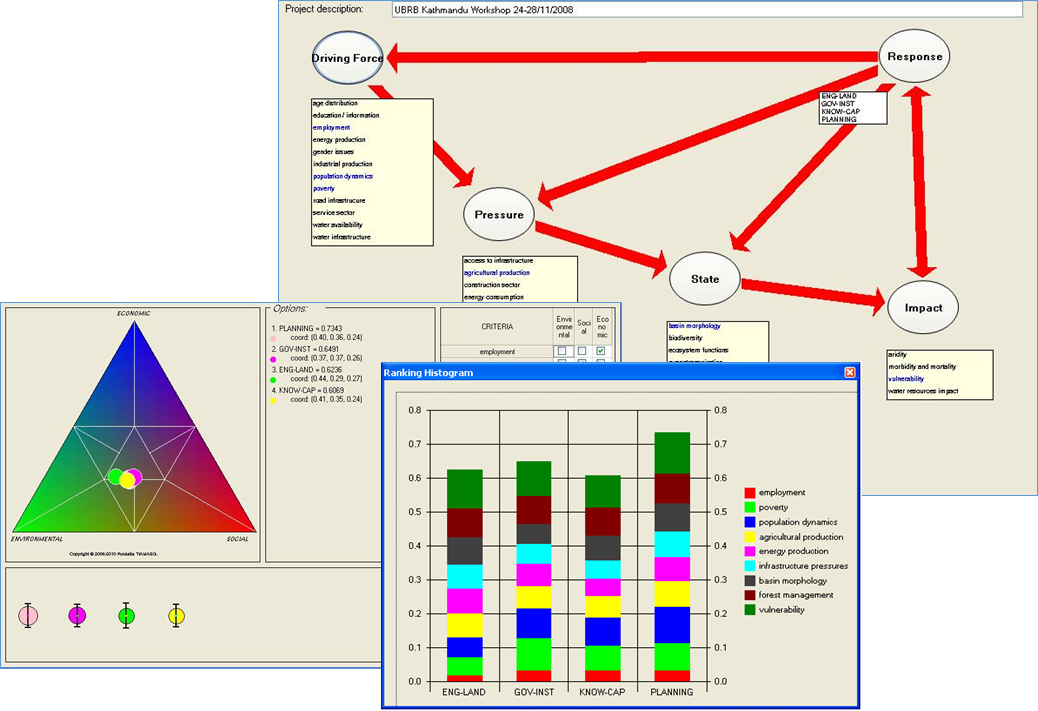NetSyMoD Case Studies
Some NetSyMoD case studies are briefly reported belowC3-Alps (Alpine Space Programme)
Capitalising Climate Change Knowledge for Adaptation in the Alpine SpaceNetSyMoD case
The identification of a specific problem related to climate change of the cross-Alp and cross-sectoral importance and selection of a set of possible solutions and evaluation criteria, through consultation with experts; design a new online version of mDSS that is combined with webGIS in order to integrate spatial component of the climate change adaptation; analysis of the alternative solutions to the problem, by elicitation of stakeholders’ preferences, and multi-criteria evaluation of alternative measures based on the knowledge and preferences expressed by stakeholders. Actors are mobilized through mailing lists and other online networks and involved in the evaluation process through the online platform provided by the project.
References
Project website:
http://www.c3alps.eu/index.php/en/
CMCC website:
http://www.cmcc.it/projects/c3-alps-capitalizing-climate-change-and-knowledge-for-adaptation-in-the-alpine-space-2
Web
platform: http://portal.c3alps.eu/dss/
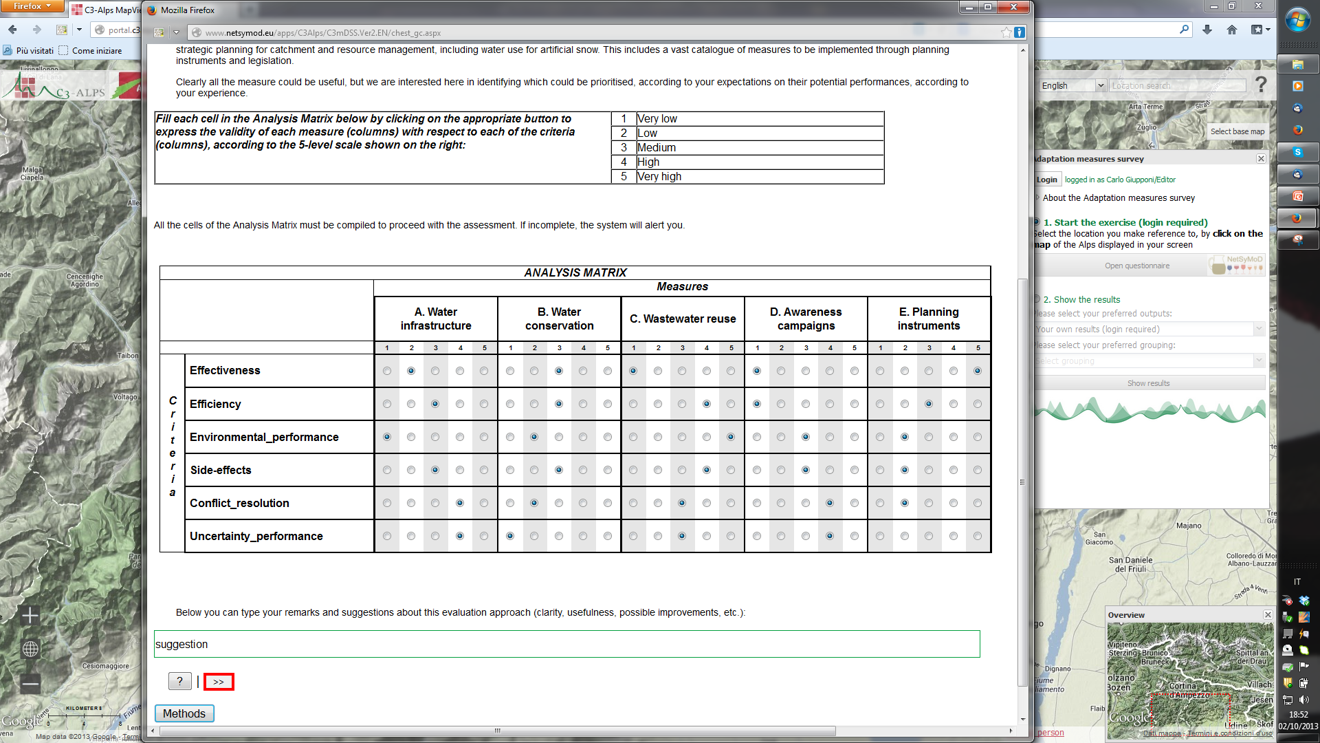
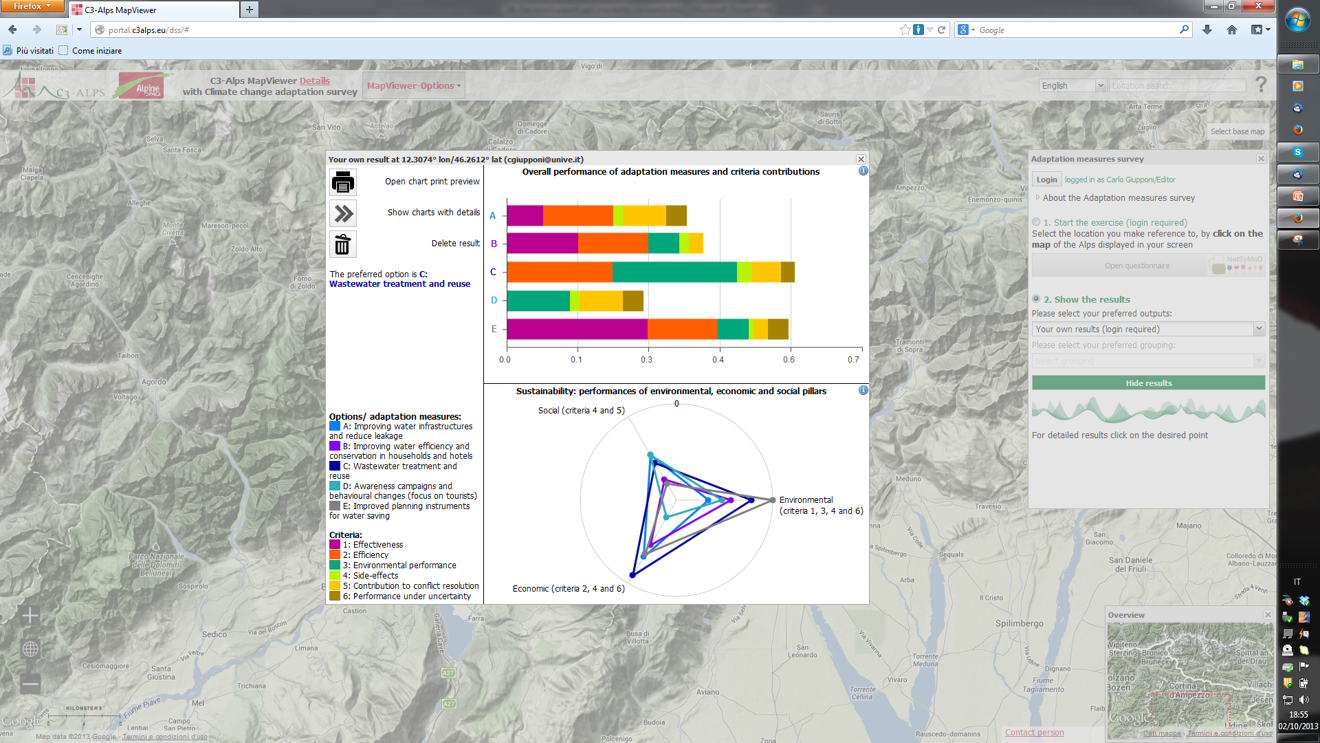
ICARUS (IWRM-NEt Project)
IWRM for Climate Change Adaptation in Rural Social Ecosystems in Southern EuropeNetSyMoD case
The problem of dealing with the effects climate and other changes on irrigated agricultural systems was formalized via an online participatory process that identified the impacts on the ground, the main pressures and drivers of the stakeholders (farmers), and a range of potential solutions. The latter were refined with policy-makers in order to ensure their policy relevance. Then, in a second phase, the study collected, through mDSSweb, farmers’ and irrigation boards representatives’ opinions about the potential of different strategies for water conservation, in order to identify actors’ priorities in terms of their expectations of efficacy.
References
CMCC website: http://www.cmcc.it/icarus-project-project-description
Publications : www.iemss.org/iemss2012/proceedings/C1_0968_Bojovic_et_al.pdf
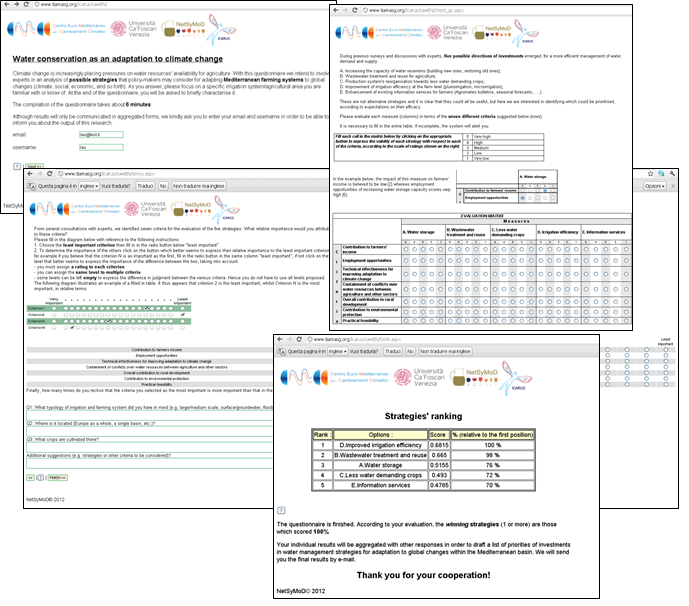
ClimAlpTour (Alpine Space Programme)
Climate Change and its impact on tourism in the Alpine SpaceNetSyMoD case
Problems related to adaptation of the tourism sector to climate change in the Alpine area was addressed through the design of a new version of mDSS and the organisation of NetSyMoD workshops for the definition of local climate change scenarios, the identification of evaluation criteria to choose among available strategies, the elicitation of preferences by persons or groups of actors, and the multi-criteria evaluation of alternative strategies thanks to the knowledge and preferences expressed by the stakeholders involved in the project.
References
- Project web site: http://www.climalptour.eu/content/
- CMCC web site: http://www.cmcc.it/projects/climalptour-climate-change-and-its-impact-on-tourism-in-the-alpine-space
- UNIVE web site: http://virgo.unive.it/climalptour/
- Publications: http://virgo.unive.it/climalptour/publications.html
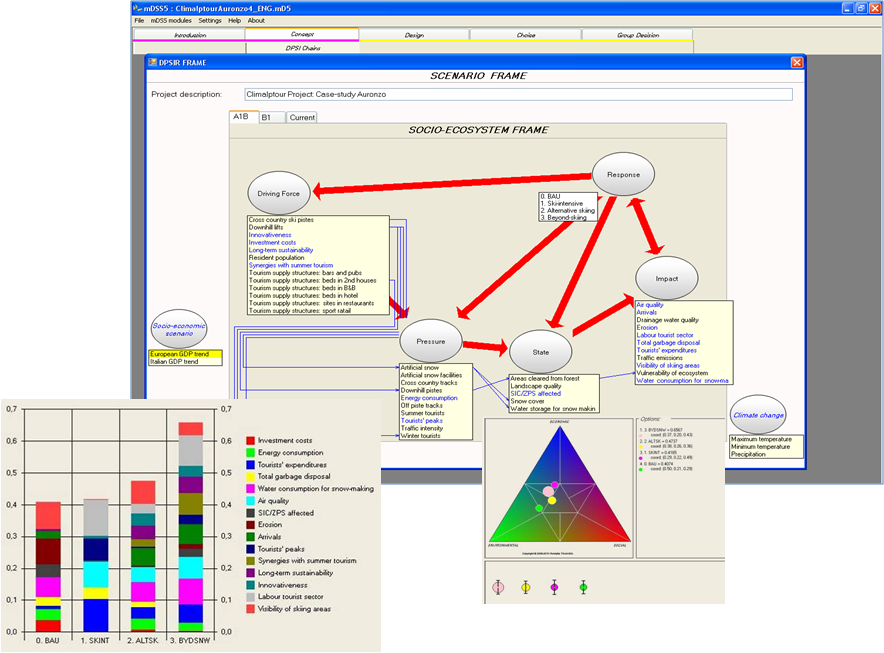
Brahmatwinn (FP6 Project)
Twinning European and South Asian River basins to enhance capacity and implement adaptive integrated water resources management approachesNetSyMoD case
A methodological proposal aimed at improving the effectiveness of interactions between the scientific community and local actors for decision-making processes in water management was developed and tested to two case studies, in Europe and Asia: the Upper Danube (Danube) and Upper Brahmaputra (Brahmaputra) River Basins. The general objectives of the case studies were the identification and the exploration the potential of adaptation strategies to cope with flood risk in mountain areas. The proposal consists of a sequence of steps including participatory local workshops and the use of a decision support systems tool: mDSS. Workshops enabled the identification of four categories of possible responses and a set of nine evaluation criteria, three for each of the three pillars of sustainable development: economy, society and the environment. They also led to the ranking of the broad categories of response strategies, according to the expectations and preferences of the workshop participants, with the aim of orienting and targeting further activities by the research consortium. The mDSS tool was used to facilitate transparent and robust management of the information, the implementation of MC decision analysis and the communication of the outputs.
References
Project web site: http://www.brahmatwinn.uni-jena.de/index.php?id=5314&L=2
FEEM web site: http://www.feem.it/getpage.aspx?id=143&sez=Research&padre=18&sub=70&idsub=86&pj=Past
Publications:
http://www.adv-sci-res.net/7/
http://ec.europa.eu/research/environment/pdf/project_summaries/fp6/natural_resources/brahmatwinn.pdf
http://www.sciencedirect.com/science/article/pii/S146290111100092X
Presentations:
http://www.feem.it/userfiles/attach/20121191254452012.01.19_Valentina%20Giannini_presentation.pdf
